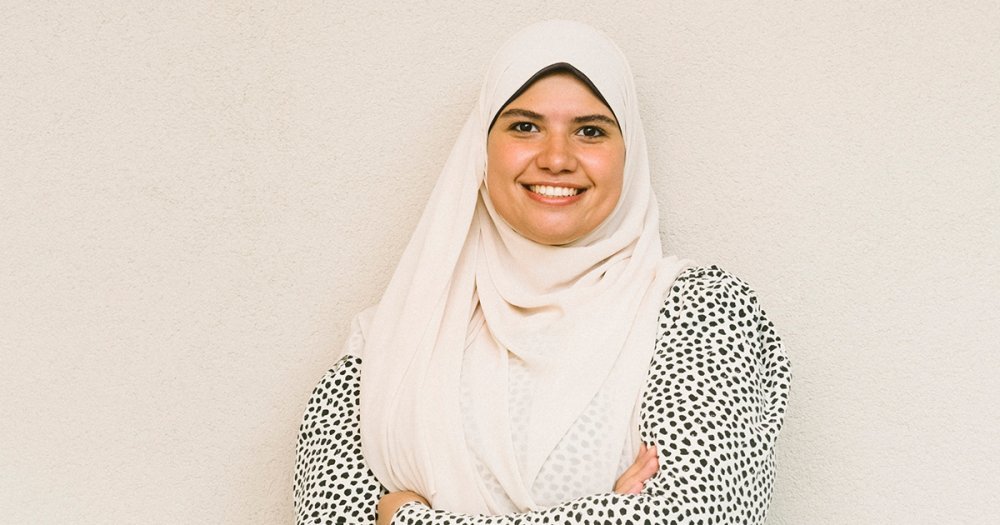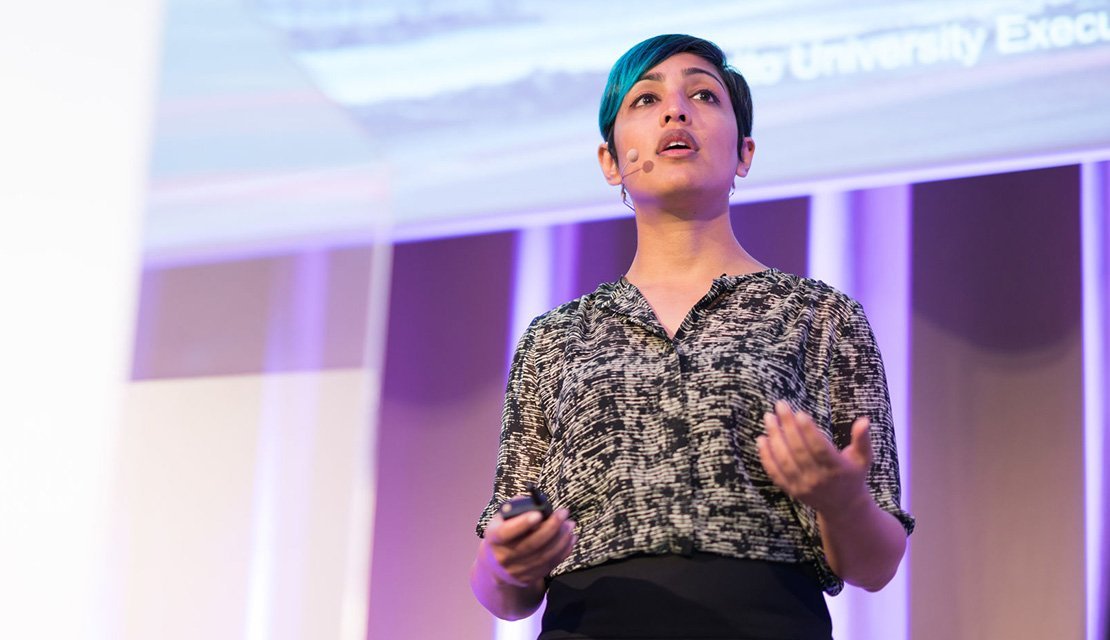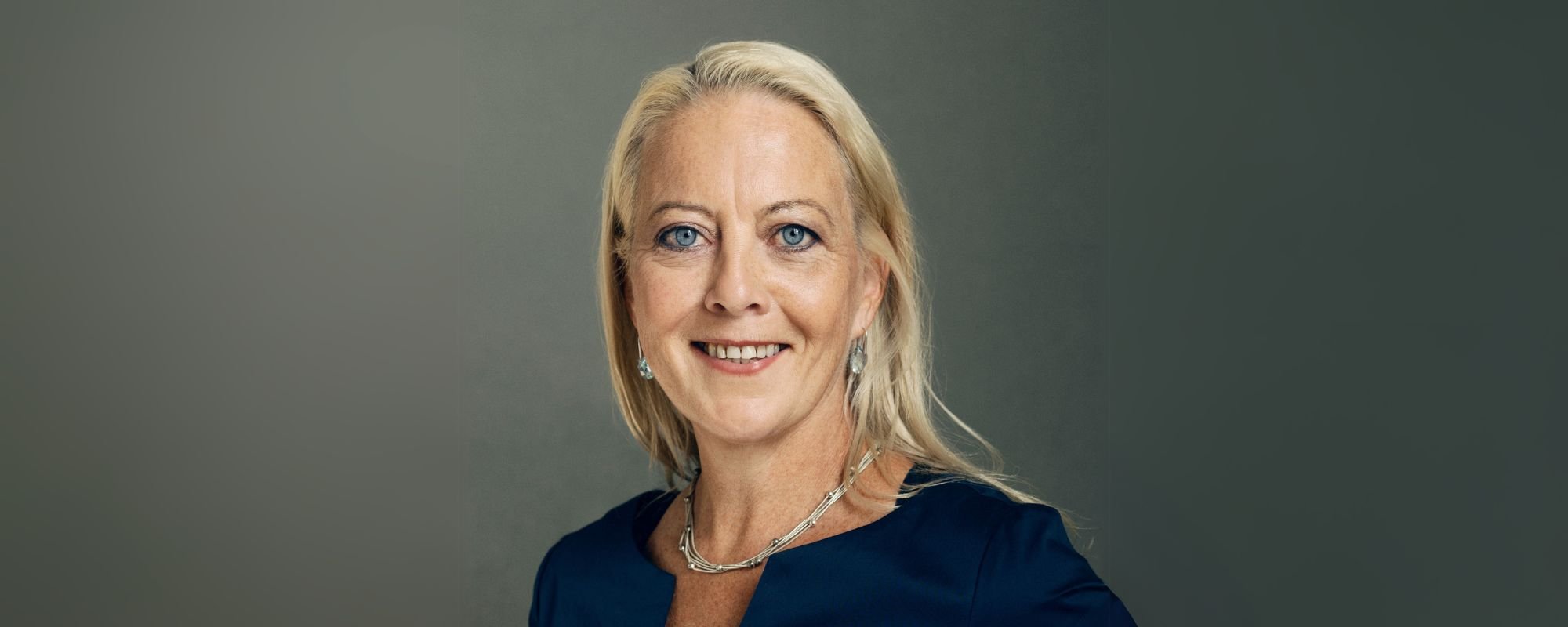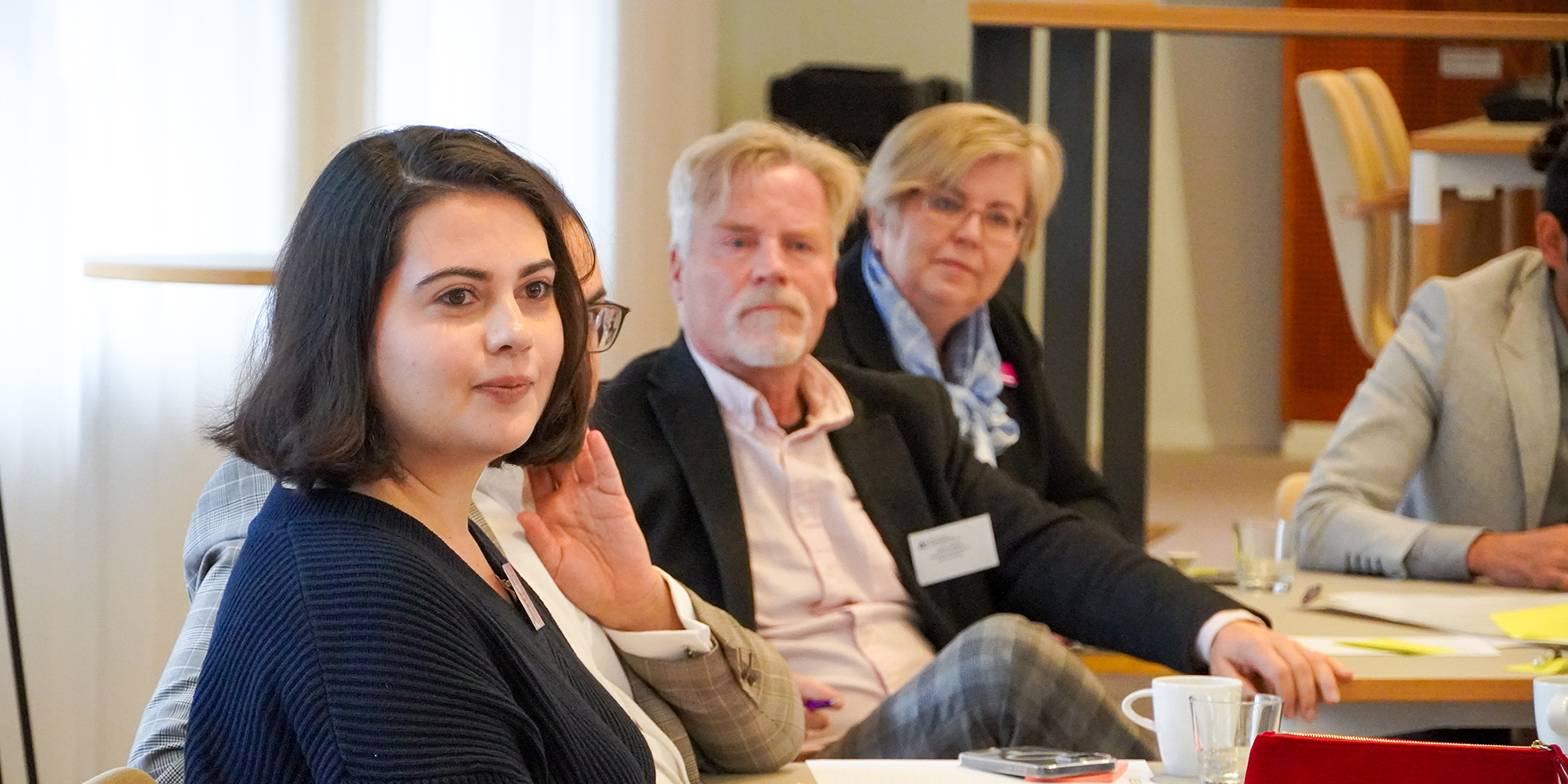A humanist geek – an apt description for this lady who travels the world to talk about ethical AI. Data is not an objective truth, she says. AI is better at making decisions but it does not necessarily mean that it makes better decisions, she believes. Artificial intelligence can reflect and reinforce societal prejudice and gender differences, but can also help fight them, she reminds.
Rumman Chowdhury is an American data scientist and the Responsible Artificial Intelligence Lead at Accenture. She gushes about AI and technology but is eager to remind that data alone will not solve the problems of humanity, neither does it operate objectively or equally despite first impressions. Data reflects human behavior, and needs to be used responsibly, with awareness of its character. ”AI can be used for fixing and identifying inequality and bias found in algorithms.”
AI needs to be accessible and it needs to be used responsibly.”
Let’s take an example: technology-driven education may be a channel for lifting more and more people out of poverty. “These days, you only need a laptop and the Internet for educating yourself.” But education alone is not enough, you need a job. This is where AI comes to the aid for instance by charting an individual’s competence and talent by searching for suitable jobs or career paths. On a larger scale, it is also a question of whether technology and AI are used for the right issues like making the world a better place and solving problems.
“AI needs to be accessible and it needs to be used responsibly”, Rumman Chowdhury says. When she speaks, she sounds more like a renaissance character than an IT guru. ”It’s not learning to code but solving problems that’s essential.”
You need both humanists and geeks in top positions
Many technology companies have come to realize that product development, customer insight, HR, and adjusting to digitalization require humanists and geeks in top positions. In the future, humanist and geeky features are desirable in each and every one. Technology and humanities are not separate entities after all, Facebook’s recent problems serving as a case in point. Fake news and other repercussions are not the fault of AI but of immorally used AI. “What happens to information we share on social media is scary”, Rumman Chowdhury points out. This is the core of ethically and unethically used data. “It applies to us all.”
Rumman Chowdhury lives in Silicon Valley. She does not exactly praise her home surroundings. One of the problems is the community’s stance towards wunderkind boys with a techy background.
The world’s richest 23-year-olds live in Silicon Valley, yet people are living in tents on the streets."
”Oooh, you can code, awesome!” is what they say. But the emphasis should be on what coding can achieve. The world’s richest 23-year-olds live in Silicon Valley, yet people are living in tents on the streets. If we’re this great, why can’t we – or why don’t we want to – solve problems like homelessness?”
The distribution of venture capital in Silicon Valley is one example of the bias in tech culture. In fact, the simplest AI application is enough to reveal the existing funding bias: two per cent of venture capital funds go to women, and the ratio is even lower for black women.
“I was naïve when I came to Silicon Valley. I assumed that startups were profitable without realizing that men were serving each other and sharing money among themselves with the apps they developed. It is very unhealthy: the economy, the rents, people living on the streets…”
AI can be used as a tool for improving diversity
Chowdhury thinks Silicon Valley should assume a more ethical working culture. She aims to address the situation with the tools she has co-developed with researchers. Her Fairness Tool scrutinizes the data that is added to an algorithm and identifies whether certain nominators, such as race or gender, influence the outcome. In a similar way, AI can be used as a tool for improving diversity in recruitment, or to calculate that people with diverse backgrounds are equally heard at meetings and in panels.
How did Accenture’s consultants and employees receive a woman who talks about ethics and different biases?
“It has varied”, says Chowdhury. She might get members who are preparing a project to complete an assignment that aims to identify areas where they may confront bias. How does this affect children, people with disabilities, or the elderly? What role does gender or race play? Identification relies on traditional methods, such as sticky notes.
You need to understand society and look at your work with empathy, from an outside perspective."
”You shouldn’t think of yourself as a service user. You need to understand society and look at your work with empathy, from an outside perspective. We’ve already seen what happens if everyone only thinks about themselves.”
According to Chowdhury, bias analyses should be part of technological processes all along instead of putting finished products or services through a bias machine to see how they fared. “In a way, I hope I’m making myself unnecessary, as ethical AI thinking spreads and becomes ingrained.”
Rummin’s employer Accenture recruits as many as 90,000 people each year. It is important to know their backgrounds and who could be missing.
Let’s not think about work all the time
Rumman Chowdhury says she usually gets a warm welcome especially in the Nordics, where an ideology of equality has a firm footing. In the fall, she held a lecture on ethical AI at the Aalto Executive Summit in Otaniemi, Espoo.
In her keynote speech, she discussed philosopher Hannah Arendt’s thinking on the darker sides of humanity, such as the rise of Nazism. Yet Chowdhury’s speech painted an optimistic picture rather than falling into despair. "The revolution of AI and technology creates a renaissance in time management. When every minute is no longer consumed by work and earning a living, humanity can be re-examined from the view of fulfilling our potential”, says Chowdhury.
”My parents didn’t ask themselves what their passion was. They had to work to pay their way.”
I want to meet young people, predispose my thinking to theirs, keep inspiration alive through them.”
What is Chowdhury’s passion?
”That’s a difficult question. For my parents, work was work and home was home, while for me, entertainment, work, leisure time and home overlap… Perhaps my passion is to use numbers and data to understand the patterns of human behavior.”
”I want to meet young people, predispose my thinking to theirs, keep inspiration alive through them.”
Rumman Chowdhury travels the world. After Finland, she will be speaking in Norway – on the ethics of AI of course. Yet she feels there needs to be more to life than work. “Let’s think about other things but work”, she also encourages her audience in Espoo.
Technology enables work around the clock anywhere in the world. “That’s why we are all running. You can work more and faster than before. But if we don’t loosen our grip, we will lose the battle.”
Connecting humanities and technology
Rumman Chowdhury was raised by Bangladeshi immigrants in Rockland County, New York. “My school was a normal public school that was diverse. The teachers were great, and I was taught to challenge truths and think for myself.”
Chowdhury was born in 1980. She attended top universities, and worked in both the public and private sectors alongside studying. She saw the connection between humanities and technology both in her studies and at work. “I studied biomedical engineering and political science at MIT, Massachusetts Institute of Technology. I then continued to Columbia University for postgraduate studies in statistics and quantitative methods.”
She holds a doctorate in political sciences from the University of California, San Diego.
“When I started my studies in philosophy, people didn’t really get why a data scientist wanted to study something like that. But I’d realized that if you study programing, you don’t learn to ask questions. And that’s what counts: knowing how to ask questions and frame a discussion. Just understanding numbers is not enough.”
Rumman Chowdhury was speaking at Aalto Executive Summit 2018. The next Aalto Executive Summit is held in August 2019 in Singapore. The theme of the Summit 2019 is Politics of Business. Read more about Aalto Executive Summit and degree programs.





















